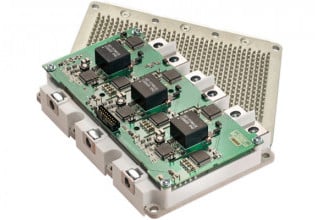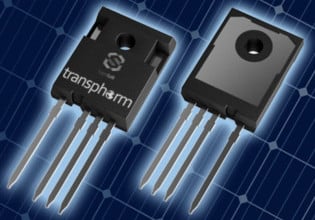Texas Instruments Partners With B-Secur For ECGEKG Monitoring IC
TI’s IC can achieve low current on continuous operation making it ideal for optical heart monitoring.
Consumer wearables are widely used because of their abilities to provide health-benefiting data like heart rate. Texas Instruments (TI) has launched an analog front end (AFE) device as an electrocardiogram (ECG/EKG) solution to be integrated into next-generation wearable devices.

TI’s IC can achieve low current on continuous operation making it ideal for optical heart monitoring. Image used courtesy of B-Secur.
TI’s Front End Solution
Smartwatches and fitness bands can be spotted all around the world without even being in an exercising setting. With health and wellness on the rise since the pandemic hit, personal health monitoring has also followed suit. Being able to see accurate ECG signals on a wearable device is comforting to consumers. For electrical designers, there are a few challenges in scaling down these battery-powered ECG acquisition solutions. These challenges are maintaining a small footprint, providing low power consumption, and overcoming signal quality degradation.
ECG signal quality is affected by small, dry electrodes; the electrodes suffer from the high electrode to skin contact impedances, which causes signal loss and increases noise pollution. TI has been able to address these challenges with an ultra-low-power, noise limiting device, AFE4950, that simultaneously be used to monitor optical heart rate and the impedance between electrodes.
TI’s AFE4950 is equipped with 4-input channels, an 8-bit PPG transmitter, and two parallel PPG receivers that filter noise as PPG signals are processed. Image used courtesy of Texas Instruments.
The AFE4950 supports the simultaneous and synchronized acquisition of up to 24 photoplethysmography (PPG) signals. PPG is an optical technique used to detect changes in volume from blood in the peripheral circulation. The device is equipped with an ECG signal chain that supports electrode configurations, this allows designers to incorporate this IC into low-power monitoring systems to read impedances between a pair of electrodes. A PPG transmitter and receiver combined with the ECG acquisition feature allow for the IC to also monitor blood pressure. The ECG and PPG signals pass through the AFE to analyze the time difference between appropriate points in the two waveforms to a correlation to blood pressure.
TI and B-Secur Collaborate for Health and Wellness Solution
B-Secur is an expert in developing ECG technology. Through their patented platform, HeartKey, B-Secur was able to use ECG/EKG algorithms and analytics to establish user identification, health, and wellness to integrate into an internet of things (IoT) devices and systems.
B-Secur’s HeartKey suite provides the following algorithms: signal conditioning, heart-rate, heart-rate variability, arrhythmia analysis, physiological stress, and individual user ECG/EKG acquisition. HeartKey has recently been awarded FDA clearance for signal conditioning and heart-rate monitoring. Signal conditioning is a key feature to be recognized since it handles incoming ECG signals that are manipulated to remove unwanted noise to allow the data to be processed in ideal conditions.
B-Secur has joined forces with TI and their collective efforts bring forth a fully integrated sensor that enables heart-health features to be accessible in next-gen wearables. B-Secur utilizes TI’s AFE solution in order to accelerate the development process of high-performance biosensing devices.

Early this year, B-Secur received FDA regulatory clearance for its’ ECG/EKG suite of algorithms, HeartKey. Image used courtesy of B-Secur.
The product line manager for the medical imaging department at TI, Karthik Soundarapandian shared the importance of this collaboration, “The trend in consumer electronics is to add more health monitoring into smartwatches and other wearables.
This, in combination with a patient’s medical history, can help health professionals with early detection and prevention of disease.” Karthik also added how TI’s solution will improve B-Secur’s time to market frame and allow for the ECG/EKG device to be widely available, “The precision signal quality from the AFE4950-based hardware, combined with B-Secur’s algorithms, will help wearables manufacturers design solutions that make clinical-quality monitoring more accessible to a wider population.”
In the coming months, we can expect to see a surge in wearables that will quickly alert consumers with medical alerts for their heart’s current condition. Health and wellness data will be readily accessible with a touch of a button and easily shared with a doctor from the comfort of your home.






